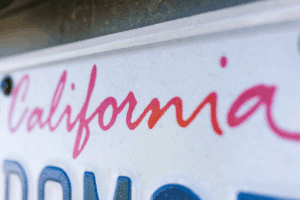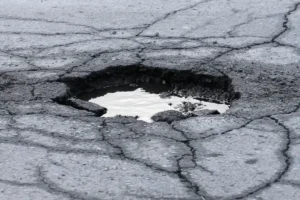California Hit and Run Laws
If you’ve been involved in a hit and run accident, an experienced attorney can explain your rights and options. At Cutter Law, P.C., we’ve handled a broad range of motor vehicle accident cases, including those in which a driver fled the scene. We have a deep knowledge of California hit and run laws and are committed to assisting both victims and accused drivers.
Hit and run accidents often leave victims feeling overwhelmed and uncertain about what to do next. Whether you were injured by a driver who fled the scene or are facing accusations of leaving an accident yourself, you need an attorney who understands California’s hit and run laws. At Cutter Law, we draw on our experience with these cases to provide knowledgeable, compassionate representation and guide you through the legal process.
What Is Considered a Hit and Run in California?
Under California Vehicle Code sections §20001 and § 20002, any driver involved in an accident must remain at the scene if there is any evidence of property damage, injury, or death. If a driver fails to do so, the accident becomes a hit and run.
If there is no injury, drivers must stop their vehicles at the closest safe location and present their license and registration to the other party. If the owner is not present, the driver must leave a note and notify the police. Violation of this law is a misdemeanor.
For accidents involving injury or death, California Vehicle Code § 20003 requires drivers to provide their name and address, along with the names and addresses of any passengers, to law enforcement at the scene. They must also offer reasonable assistance to anyone who is injured.
If there are fatalities, Vehicle Code § 20004 applies, and drivers must immediately report any fatalities to the police. Violating Vehicle Code § 20003 or § 20004 is a felony offense.
For example, suppose another driver struck you from behind in a rear-end collision. The driver flees the scene to avoid insurance surcharges and legal liability, but they are now subject to hit and run charges. If you suffer injuries in the accident or someone dies, the driver may face felony charges.
Penalties for Hit and Run Offenses in California
If the hit and run accident caused property damage but no injuries, it is treated as a misdemeanor. Under Vehicle Code § 20002, penalties may include up to six months in a county jail, a fine of up to $1,000, or a combination of the two.
Meanwhile, if the accident leads to injury or death, a hit and run conviction is a felony. Penalties could include up to one year in state prison, a fine of $1,000 to $10,000, or a combination of both.
Should the accident result in serious injury, violators face either or both of the following:
- State imprisonment for two to four years or 90 days to one year in a county jail
- A $1,000 to $10,000 fine
Under Vehicle Code § 20001, the court may reduce the above penalties based on the defendant’s ability to pay. Penalties may be higher if there are extenuating circumstances, such as driving under the influence of alcohol or drugs or the at-fault party being an unlicensed driver.
Additionally, under California’s DMV points system, you receive two points on your license if you flee the scene of an accident.
What To Do if You're Involved in a Hit and Run Accident
What you do after a car accident matters, even if the accident is not your fault. Be sure to:
- Call 911: Ask for an ambulance if anyone is seriously injured, and request that police come to take a report. While you can legally file a claim without a police report, having one can strengthen your case.
- Gather evidence: Photograph the damage, any visible injuries, and location markers, such as street signs. Talk to witnesses and ask about video evidence.
- Get medical attention: If you don’t need ambulance service, make time to see a doctor as soon as possible after the incident.
- Report the accident: Under California car accident reporting laws, you must contact the California Department of Motor Vehicles within 10 days if the incident resulted in injury, death, or more than $1,000 in property damage.
- Get a lawyer: Contact an attorney with experience in your area and case type.
It’s essential to take these steps after any car accident. Failing to do so may harm your case or, if you leave the scene, may result in a hit and run charge.
What To Do if You're Accused or Charged
If police reach out to you about a hit and run, do not admit fault before consulting an attorney. Instead, contact a criminal defense lawyer right away, remain silent whenever possible, and never attempt to hide or alter evidence, as this can lead to additional criminal charges.
How a California Hit and Run Lawyer Can Help
Whether you suffered injuries in a hit and run accident or someone has accused you of fleeing the scene, our hit and run attorneys can help. Our Oakland, Santa Rosa, and Sacramento car accident lawyers work with clients across Northern California and throughout the state.
We represent your interests throughout the process, starting with the accident investigation process. We help you navigate the insurance process, representing you in negotiations and going to trial if necessary.
We are family-owned, California-based, and client-focused. Call 916-290-9400 or contact us online for a free consultation.
California Hit and Run Laws FAQ
- What is the statute of limitations for a hit and run accident in California?
In California, the statute of limitations varies depending on the type of case. For civil claims, you generally have two years from the date of injury or death to file a personal injury or wrongful death lawsuit, and three years for property damage claims. For criminal charges, prosecutors must file misdemeanor hit and run cases within one year and felony hit and run cases involving injury or death within three years. Missing these deadlines can bar you from pursuing compensation or allow prosecutors to drop charges, so it is important to act quickly with the help of an attorney. - Can I be charged even if the damage was minor?
California law does not specify a minimum amount of damage in a hit and run accident. You may face a charge even if the accident only caused minor property damage.
- Will a hit and run show up on my criminal record?
A hit and run conviction is a criminal offense and would appear on your criminal record, whether it is a misdemeanor or felony.
- How can I find out who hit my car and fled?
Dash cam footage or videos from witnesses may help you identify the car. An attorney can also help you pursue other options, such as surveillance footage from nearby businesses.
- What happens if I leave a note after a parked car accident?
The note must include your name, address, and driver’s license number, along with a brief statement of what happened. You are also required to notify local police or the California Highway Patrol.

Drivers who break the law, violate safety statutes, or contribute to motor vehicle accidents can have these points assigned to their driver’s license.

After a car accident in California, you can file a claim by gathering evidence, contacting your insurer, and ensuring all necessary documentation is provided to support your case.

Yes, you can sue a government entity for poor road conditions if they fail to maintain the road safely, leading to an accident and injury, but you must meet strict deadlines and prove negligence.
